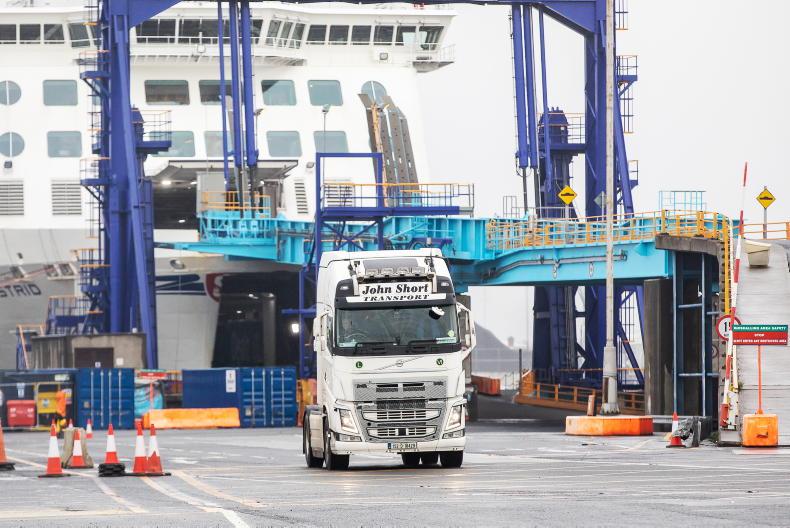The UK is scheduled to introduce border controls on 31 January, which has been deferred five times since the UK left the EU single market three years ago. Full border controls on product from Britain entering the EU have been in place since 1 January 2021 and assuming there is no further delay, Irish exporters will now be subject to the same export procedure as their counterparts in Britain. This will add to the cost of doing business and, inevitably, any increase in factory costs means less money available for paying farmer suppliers.
While it is an unwelcome cost addition, the bureaucracy will be no more than an inconvenience for large Irish exporters. Most are already familiar with similar types of controls, as they are required for exports outside the EU single market to Asian and North American markets. There have also been multiple Government information campaigns ahead of each of the five missed deadlines for the UK to introduce border controls, so there is no reason why Irish exporters shouldn’t be ready.
Windsor Framework
When the UK does have full border controls in place, it will be interesting to see how it handles freight from the EU travelling through Northern Ireland to access ports in Britain. Northern Ireland is in a unique hybrid position, in that it retains full participation in the EU single market as well as participation in the UK market. This is due to the special protocol that was agreed in the Brexit negotiations and has caused difficulties for politicians in Northern Ireland that are concerned about it diluting Northern Ireland’s position in the UK.
Notwithstanding these difficulties, the protocol, which was modified through the Windsor Framework, enables Northern Ireland retain full access to EU markets. In practical terms, this means that milk from farms in Northern Ireland is collected by southern processors without any paperwork or additional checks, whereas if there was no protocol, then milk going into the Republic of Ireland from Northern Ireland would be subject to full border controls. This would be the same as what happens for any animal or plant product going from Britain to the EU, and as such would make moving milk from north to south impractical.
Irish exports via Northern Ireland
There have been multiple assurances from the UK government that goods moving from Northern Ireland to Britain will have totally unimpeded access. How this will sit alongside goods transiting from the Republic of Ireland is unclear. One option may be to have a reverse of the process currently in place for goods moving from Britain to the Republic of Ireland/EU through Northern Ireland. That means presenting the customs and veterinary documentation at the port of entry in Britain, while goods originating in Northern Ireland will simply continue their journey when they leave on the boat.
Border controls make trade between the EU and UK more difficult, but larger exporters have found a way to make it work in the case of UK exports to the EU. The same will happen with EU exports to the UK. However, for small, low volume, niche exporters that previously used the single market to send goods to Lisbon the same way as they send them to London, the paperwork and administration means that continuing these exports is no longer financially viable. That was the benefit of the EU single market and no alternative trading system can ever replace its simplicity.
Evolving political scene
That said, with general UK-EU relations improving over the past year under the leadership of the current prime minister, there is hope that some further modifications may be possible, despite EU protests to the contrary. Global politics is in a very different place from when the UK left the EU, with war raging in Ukraine and the Middle East, making both the EU and UK realise that they still have plenty of common interests.
Also, if opinion polls are correct, it is possible that there will be a change of government in the UK this year. If the opposition Labour party is elected, then entering a veterinary agreement with the EU becomes a real possibility. This at a stroke would eliminate the need for cumbersome veterinary certification and would also largely solve the controversial protocol checks at Northern Ireland ports on goods entering from Britain.
The introduction of UK border controls later this month are unwelcome, but they will be manageable. As with all things related to Brexit, it makes business more complicated than it was in the single market, but business always finds a way to adapt. Traders have learned to live with Brexit in the UK and it will be the same in the EU and for Irish exporters.






 This is a subscriber-only article
This is a subscriber-only article











SHARING OPTIONS: